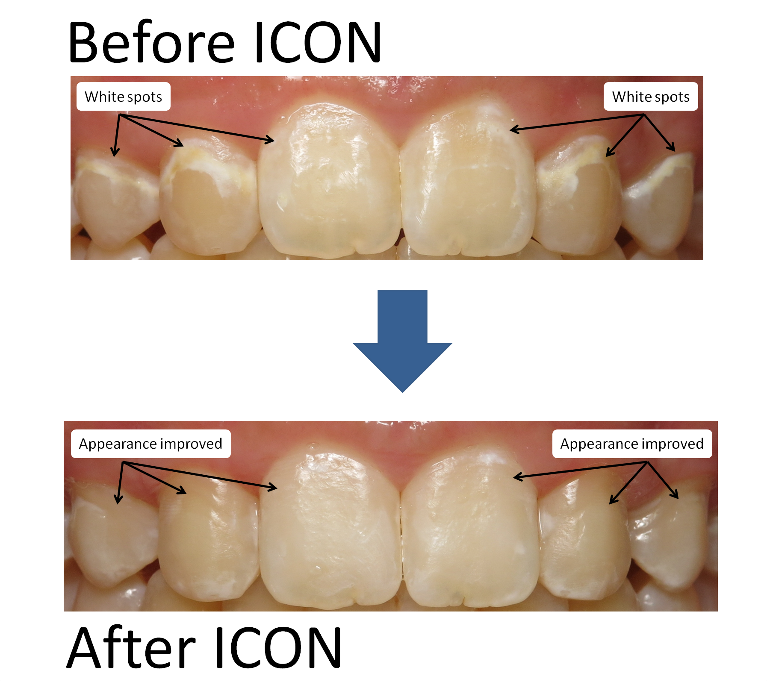Tooth Has White Spot: Fix It With Simple Remedies

The appearance of a white spot on a tooth can be quite concerning, as it may indicate the beginning of tooth decay or another oral health issue. These white spots, known as hypoplasia or enamel hypomineralization, can occur due to various factors, including poor oral hygiene, excessive fluoride consumption, or genetic predispositions. Fortunately, there are several simple remedies and preventive measures that can help address this issue and maintain a healthy, vibrant smile.
Understanding White Spots on Teeth
Before delving into the remedies, it’s essential to understand the causes and implications of white spots on teeth. These spots are often a sign of weakened enamel, which can make teeth more susceptible to decay and sensitivity. Factors contributing to their development include:
- Poor Oral Hygiene: Infrequent brushing and flossing can lead to plaque buildup, which may cause white spots.
- Fluorosis: Excessive exposure to fluoride, especially during tooth development, can result in white or yellow spots on teeth.
- Diet: Consuming large amounts of sugary or acidic foods and drinks can erode enamel and lead to white spots.
- Genetics: Some individuals may be more prone to white spots due to genetic factors.
Remedies for White Spots on Teeth
Fortunately, many cases of white spots can be treated or improved with simple, non-invasive methods. Here are some effective remedies:
1. Fluoride Treatment
Applying fluoride varnish or using a fluoride mouthwash can help remineralize tooth enamel, reducing the appearance of white spots. This is especially effective for spots caused by early stages of tooth decay.
2. Good Oral Hygiene
Maintaining good oral hygiene is crucial. Brushing teeth at least twice a day with a fluoride toothpaste and flossing once a day can help prevent plaque buildup and reduce the risk of white spots. Pay special attention to the areas around the white spots.
3. Dietary Changes
Making dietary adjustments can also help.Reducing sugar and acid intake can prevent further enamel erosion. Consuming foods rich in calcium and vitamin D, such as dairy products, leafy greens, and fatty fish, can support tooth health.
4. Microabrasion
This is a professional dental treatment that involves gently removing a small amount of enamel to improve the appearance of white spots. It’s often combined with fluoride treatments for better results.
5. Enamel Microabrasion with Bleaching
For spots that are also associated with discoloration, a combination of microabrasion and teeth bleaching can offer a comprehensive solution. However, this should be done under professional supervision to avoid over-bleaching or damaging the enamel further.
Preventive Measures
Prevention is always the best approach when it comes to oral health. Here are some measures to prevent white spots from forming:
- Regular Dental Check-ups: Regular visits to the dentist can help identify and treat oral health issues early on.
- Balanced Diet: A diet rich in nutrients and low in sugars and acids supports healthy teeth.
- Proper Brushing and Flossing Techniques: Ensuring that teeth are cleaned properly without being too abrasive can prevent damage to the enamel.
- Use of Dental Sealants: Applying dental sealants, especially in children, can protect the teeth from decay and the formation of white spots.
Conclusion
While the appearance of a white spot on a tooth can be alarming, it is often treatable with simple remedies and preventive measures. By understanding the causes, adopting good oral hygiene practices, and possibly incorporating professional dental treatments, individuals can effectively address white spots and maintain a healthy, attractive smile. Remember, early intervention is key to preventing more severe oral health issues, so don’t hesitate to consult with a dental professional if you notice any unusual changes in your teeth.
What causes white spots on teeth?
+White spots on teeth can be caused by various factors, including poor oral hygiene, excessive fluoride consumption, genetic predispositions, and dietary habits high in sugar and acid.
Can white spots on teeth be prevented?
+Yes, white spots can often be prevented by practicing good oral hygiene, maintaining a balanced diet, and avoiding excessive consumption of sugary and acidic foods and drinks. Regular dental check-ups are also crucial for early detection and treatment of any oral health issues.
How are white spots on teeth treated?
+Treatment for white spots on teeth depends on the cause and severity. Common treatments include fluoride varnish applications, microabrasion, and in some cases, teeth bleaching. It's essential to consult with a dental professional to determine the best course of treatment.
By combining these remedies with a commitment to good oral health practices, individuals can effectively manage and prevent white spots, ensuring a smile that is both healthy and beautiful.

